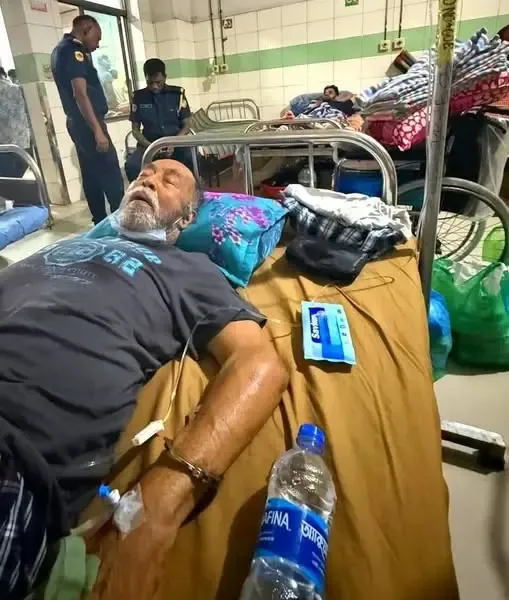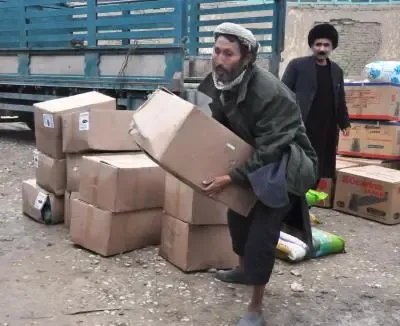Why Are We Outraged Over Photos of Ex-Bangladesh Minister Handcuffed to a Hospital Bed?

Synopsis
Key Takeaways
- Images of Humayun handcuffed in a hospital have sparked outrage.
- Human rights advocates are condemning the treatment as inhumane.
- The incident violates legal standards for the treatment of detainees.
- Many view it as a reflection of ongoing authoritarian practices.
- The outcry underscores the need for legal reform and accountability.
Dhaka, Oct 2 (NationPress) The release of images depicting former Bangladesh Industries Minister Nurul Majid Mahmud Humayun, handcuffed to a hospital bed during his treatment at Dhaka Medical College Hospital (DMCH), has sparked significant outrage and condemnation among human rights advocates and legal professionals, according to local media. Humayun, a prominent leader of the Awami League and a former lawmaker, was held at Dhaka Central Jail in Keraniganj. He was admitted to DMCH in critical condition and passed away on September 29. Following his death, images of him restrained to the bed emerged on social media, igniting considerable criticism.
Despite prison officials claiming that the photos were taken during an earlier stage of his hospitalization, lawyers and human rights defenders have labeled the act as a severe violation of human dignity.
"Handcuffing a dying or deceased individual is inhumane and represents a glaring violation of human rights. This will stand as a testament to the most egregious breach of dignity," remarked human rights advocate Nur Khan Liton in an interview with the esteemed Bangladeshi daily, The Business Standard.
The controversy has reignited discussions about a 2018 High Court ruling that arose from a petition by the Bangladesh Legal Aid and Services Trust (BLAST). This ruling directed officials to limit the indiscriminate use of handcuffs on detainees and to take care in such situations.
Advocate Abu Obyaidur Rahman, who represented BLAST in that case, stated that the viral images constituted a "clear breach" of the court's orders.
"What makes a 75-year-old ill man deemed dangerous or likely to escape?" he queried.
Human rights activist Abu Ahmed Faijul Kabir also condemned the incident, labeling it a "serious failure of the state."
"An 80-year-old man, gravely ill and nearing death—a freedom fighter and former minister—being subjected to such inhumane treatment is not just against human values but also a significant lapse in state responsibility," he asserted.
Supreme Court lawyer Jyotirmoy Barua emphasized that this act contravened Article 27 of Bangladesh's Constitution, which assures equality before the law and equitable access to healthcare.
"This selective application of law is intolerable. Justice must be impartial for everyone. Witnessing an elderly, ailing individual treated in this manner highlights the ongoing presence of authoritarian practices," he stated.
This incident occurs amid a backdrop of intensified repression against Awami League leaders and activists following the removal of former Prime Minister Sheikh Hasina in August 2024, with numerous opposition leaders reportedly imprisoned on what critics claim are fabricated charges, with several reported to have died in custody.









